Elephant Man, The (1980)
“I am not an animal — I am a human being!”
|
Synopsis: |
|
Genres, Themes, Actors, and Directors:
Review: Merrick’s transformation from mute “creature” to dignified gentleman — the crux of the film — is truly a wonder to behold; even those who rarely cry at movies (myself included) will find themselves hard pressed not to be moved by this one. Scene after scene — enacted by a crew of exceedingly well-cast supporting actors — prompts a renewed investigation of our own prejudices, as we realize just how important a relatively “normal” appearance is to our acceptance of others as human. My favorite scenes are those between Merrick and a renowned actress (Anne Bancroft) who barely bats an eye upon seeing Merrick for the first time, and remains resolutely dedicated to treating him like the gentle hero he is. Equally touching is the initial scene between Merrick and Dr. Treves’ wife (Hannah Gordon), whose “natural” acceptance of his appearance causes him to break down in sobs of gratitude. Some (including, I suspect, Peary, who neglects to nominate either Hurt or the film itself in his Alternate Oscars book) find The Elephant Man overly cloying — and there’s no doubt that our heartstrings are strategically tugged throughout the entire film. Indeed, the final portion of the story — in which Merrick is kidnapped back by Jones, and forced to temporarily revert to his former status as a carnival freak — is nearly too much to bear, and shifts the story into undue pathos. Apart from this aberration, however, Merrick’s journey remains a fascinating one to watch, and proves that there’s nothing more uplifting than watching a character transform and transcend his initial limitations. Redeeming Qualities and Moments:
Must See? Categories
(Listed in 1001 Movies You Must See Before You Die) Links: |
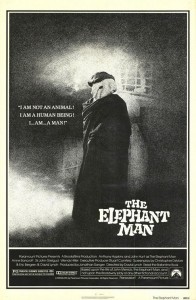
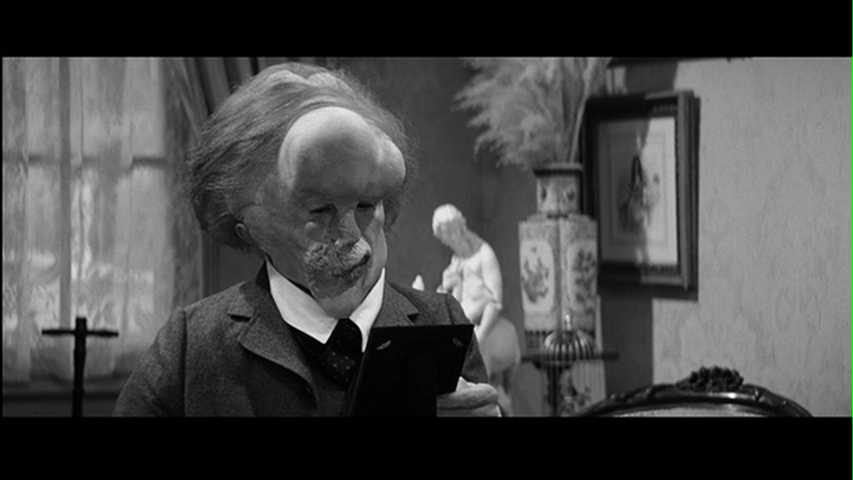
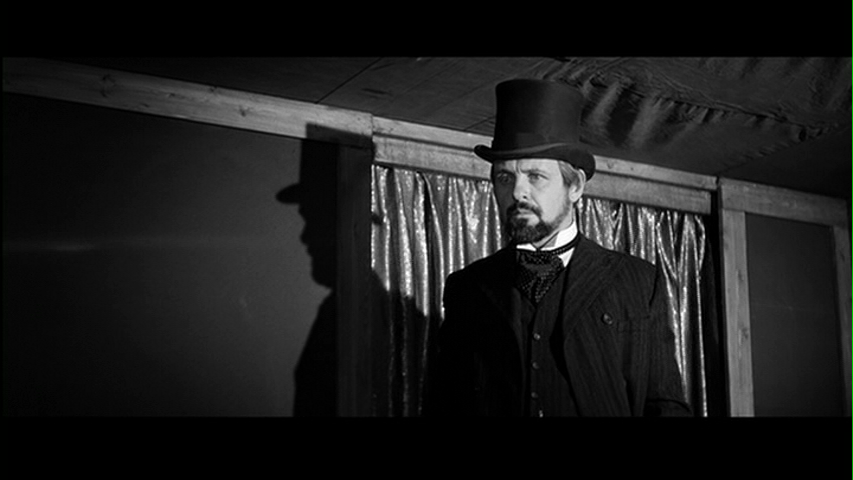
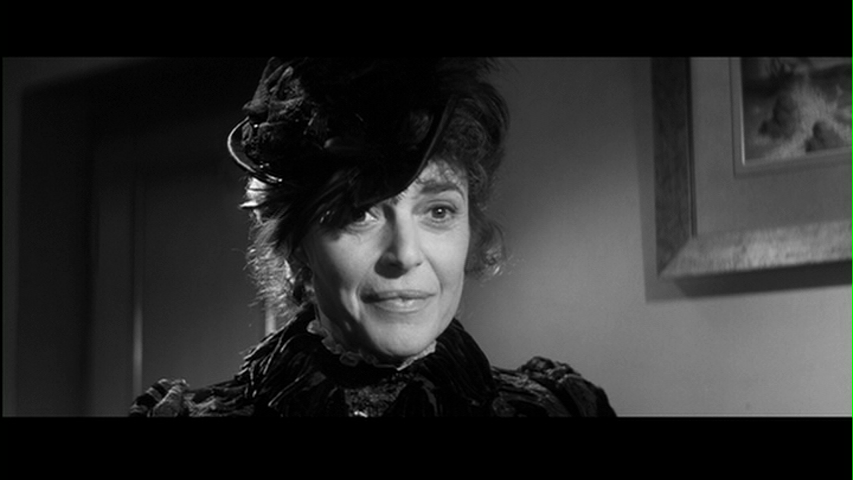

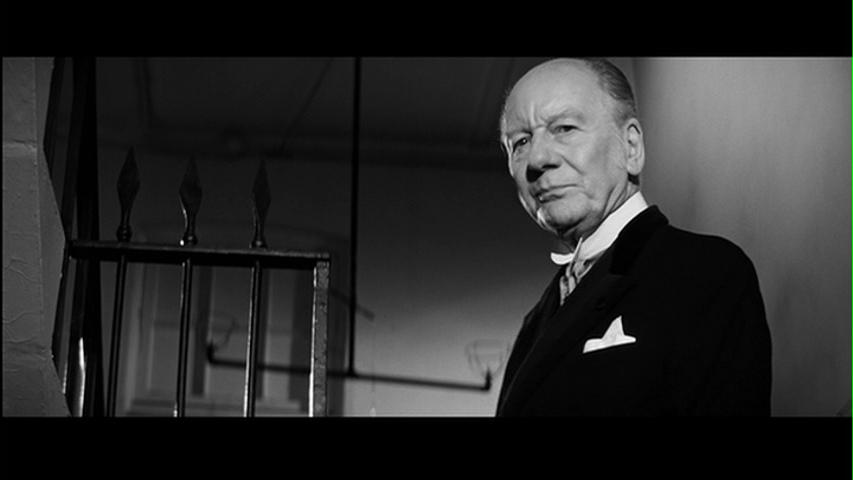
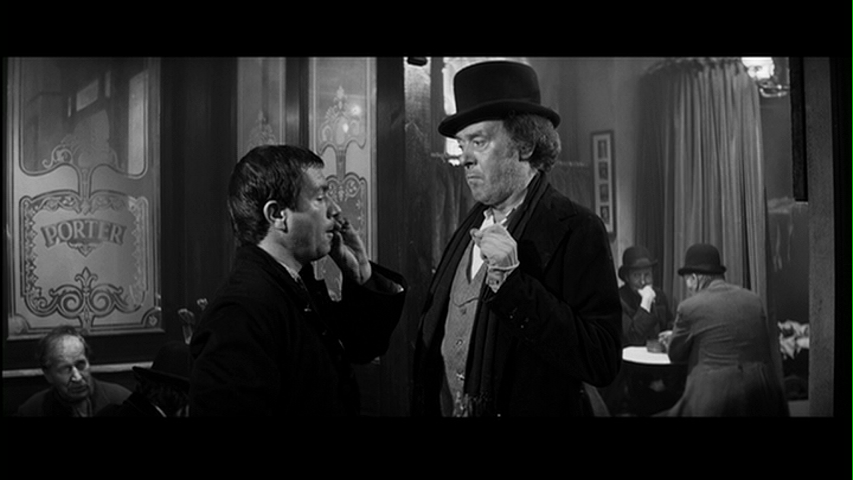

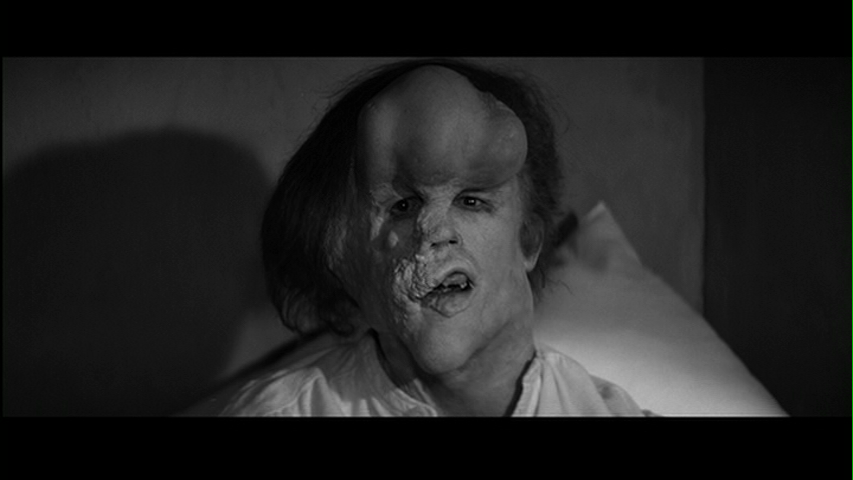
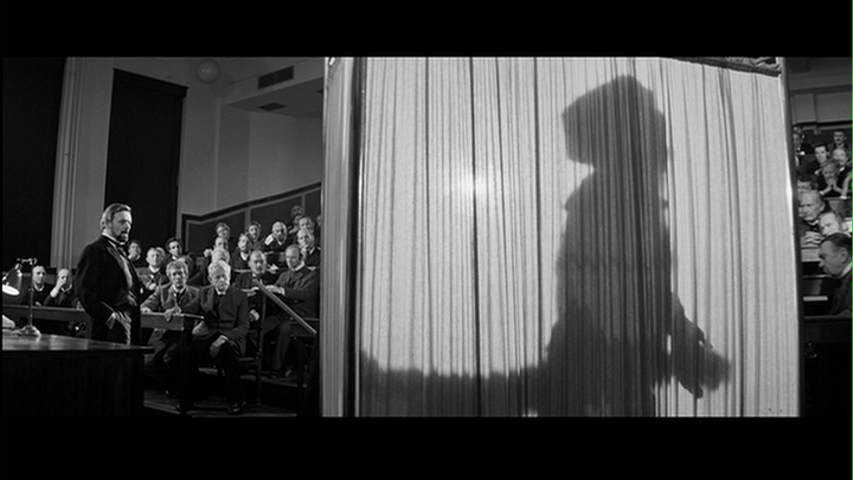
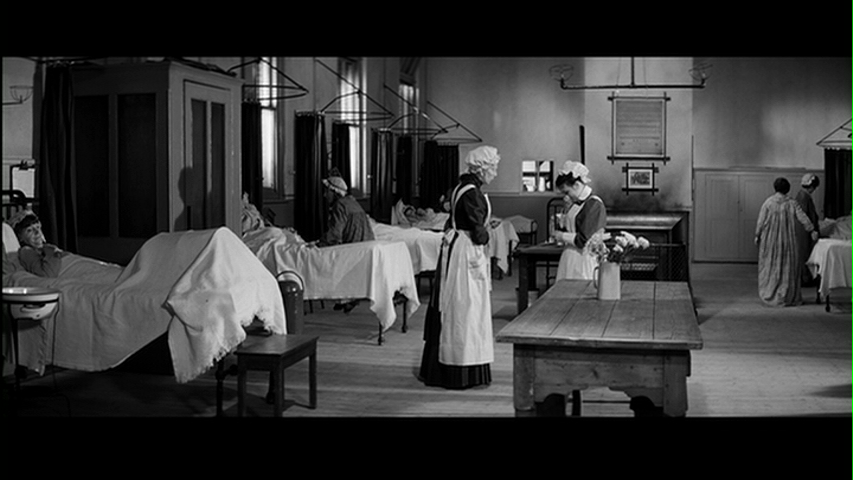
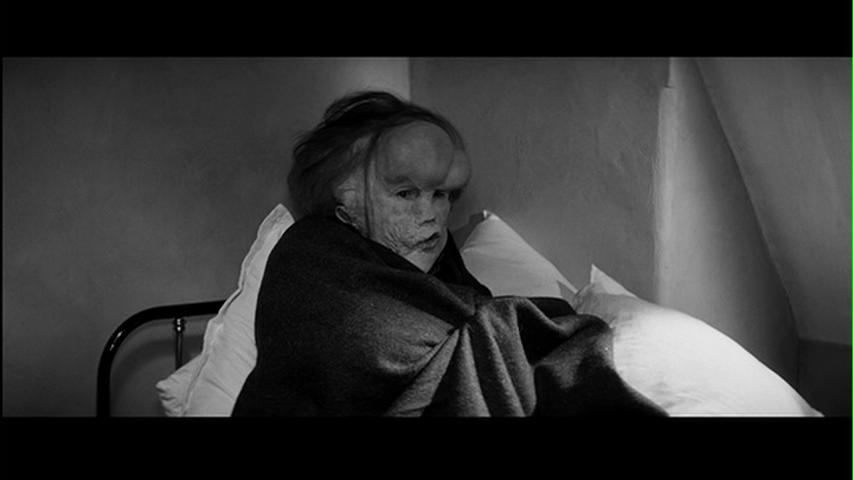
One thought on “Elephant Man, The (1980)”
A once-must, for its challenging subject matter and as one of director Lynch’s best films.
It’s probably not so much that this is one of the director’s more ‘normal’ films as it’s one of his more ‘traditional’ ones – in terms of dramatic structure and standard storytelling. That, in itself, is not what makes it better – but it’s clearly evident that Lynch was capable of reining himself in considerably, if necessary. …As his career progressed, he found that less and less necessary.
I’ve seen this film twice; I’m not sure I could handle it again. (It’s sort of like ‘The Pawnbroker’ in that sense; years may go by, but the imagery is seared into the brain.) I did, however, also see a stage version on Broadway – with David Bowie as Merrick. I recall being immediately struck by its approach: Hurt had been made-up beyond recognition; Bowie hadn’t been made-up at all but used physicality to suggest deformity.